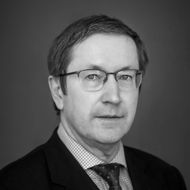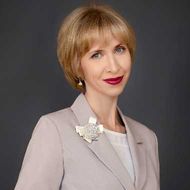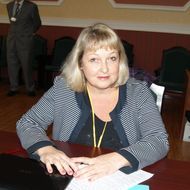- A
- A
- A
- ABC
- ABC
- ABC
- А
- А
- А
- А
- А
- HSE University
- Faculties
- Faculty of World Economy and International Affairs
- School of Asian Studies
- News
- ‘The World That Completely Changed My Life’
-
The School
21/4 Staraya Basmannaya Ulitsa, Building 5, B, Moscow
Phone: +7 (495) 772-95-90*22785
E-mail: sas@hse.ru
Likhacheva A., Strelnikova I., Kharina O. et al.
M.: CCEIS of HSE University, 2024.
Andrey V. Korotayev, Alina A. Khokhlova.
Comparative Sociology. 2025. Vol. 24. No. 3. P. 327-350.
Goliney V., Korotayev A., Malkov S. et al.
In bk.: BRICS Development in the Context of World Dynamics: Challanges and Perspectives. M.: Moscow University Press, 2024. P. 38-126.
Korotayev A., Ustyuzhanin V., Grinin L. E. et al.
. . ResearchGate, 2024

‘The World That Completely Changed My Life’
If you would have asked me five years ago where I would be in a year, I would have probably said something abstract concerning a linguistics specialization at some average Moscow university. I would have assumed that I would be studying linguistics at Moscow State Linguistic University or Moscow State University. At the time, I did not yet know that a university existed with which I was meant to associate the rest of my life thanks to just four years.
If you would have asked me what I knew about HSE, I would have said absolutely nothing, but I would have added that I thought economics was not for me and that I would not likely end up at HSE. But everything turned out quite differently. My mother kept insisting that I look at HSE’s website after I took the Unified State Exam (USE) and choose something prospective and ‘for a reasonable price.’ When I showed her the website for the Faculty of Philosophy, which I had initially become interested in when I was in high school, she went to the website of the new School and uncompromisingly suggested that I select one of three languages, but my mom insisted that I pay special attention to Chinese. I was not against this and said ‘sure!’ That is how, by pure accident, I ended up in this world, which has completely changed my life for the better.
Thanks to the efforts of the university’s teaching staff, I came to know and love a world that was previously completely unknown to me. In addition, I began to learn Chinese and gain knowledge about Chinese culture. The School gave me a large body of knowledge about the world as a whole, about philosophy, history, and the economic, political, and cultural development of humanity, which I could not have gotten anywhere else. I am very grateful to the School. In my eyes, the School is a separate living creature, a machine that worked hard and taught me and my classmates through the efforts of the Studies Administration and the instructors.
Whenever I tell people about my major, they are surprised at the very least, and offer me work at the most. I had interviews and received offers from five employers this summer because of my knowledge of Chinese alone. I had experience working with Chinese back when I was studying for my bachelor’s. I translated for Russian workers at a company that had received a laminating machine that was worth around 1 million euro. A Chinese engineering specialist came to Russia from Wenzhou, China, and I had to translate the machine’s operating procedures. The engineer did not speak English or Russia of course. I had to be the translator – me, a third-year, or maybe a second-year, I do not remember anymore. It was fun. After this, it was child’s play to show Moscow to the Chinese.
Now I am studying in the Center of East Asian Studies’ Modern East Asian Studies master’s programme at the University of Turku in Finland. The programme studies the development of East Asian countries in modernity. Thanks to the linguistic and academic background HSE’s School gave me, I feel that studying here is very easy and engaging. I also study here with two of my classmates from the School of Asian Studies, by the way. I plan on getting my PhD in Europe in the future or completing a post-graduate programme at my home School of Asian Studies if such a programme is created.
In all honesty, it was difficult for me to accept that my wonderful years in the School had to end. For me, I will probably always remember them as the craziest, brightest, both happiest and saddest years of my life. Most of my classmates have already achieved a lot in life, and I hope that I will also be able to. And it is possible that I might return here to teach at some point when I am qualified.


- About
- About
- Key Figures & Facts
- Sustainability at HSE University
- Faculties & Departments
- International Partnerships
- Faculty & Staff
- HSE Buildings
- Public Enquiries
- Studies
- Admissions
- Programme Catalogue
- Undergraduate
- Graduate
- Exchange Programmes
- Summer Schools
- Semester in Moscow
- Business Internship
-
https://elearning.hse.ru/en/mooc/
Massive Open Online Courses
-
https://www.hse.ru/en/visual/
HSE Site for the Visually Impaired
-
http://5top100.com/
Russian Academic Excellence Project 5-100
- © HSE University 1993–2025 Contacts Copyright Privacy Policy Site Map
- Edit


